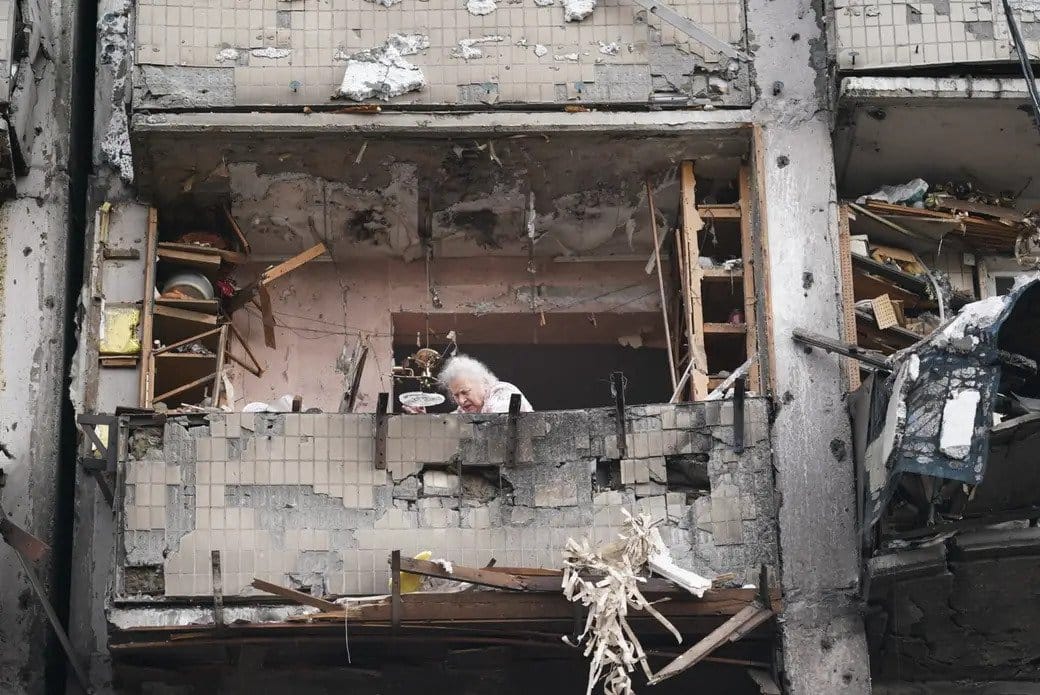Focus: Russian Invasion of Ukraine

By Gunda Pavilonytė, BA Chinese
On 24 February, Russian president Vladimir Putin ordered military forces to enter Eastern Ukraine. Residents began to seek shelter in underground stations after being woken by explosions in the early hours of the morning.
Putin’s reasoning behind his actions are to ‘demilitarize and de-Nazify’ Ukraine, protecting people from genocide. Ukraine is a European democracy that is led by a Jewish president.
There has been historical resistance from Russia against Ukraine becoming part of the European Union and joining NATO, the defensive military alliance.
On the second day of the invasion, Russia’s foreign minister Sergey Lavrov stated during a press conference that ‘nobody is going to attack the people of Ukraine,’ and that there were ‘no strikes on civilian infrastructure.’
However, reports about residential areas being struck by missiles and apartment buildings being shelled have been shared on social media since the beginning of the invasion.
The UN says that at least 198 Ukrainian soldiers and civilians have been killed so far, while Russia has not admitted any deaths on their side.
People have been seeking safety inside underground stations and air raid shelters with others protecting themselves in basements. Andrii Medianyk, a civilian living in the city of Kropyvnytskyi, shared his experience of living in a constant state of anxiety with the SOAS Spirit in a recent interview: ‘Our bags are already packed, every night we’re sleeping with our shoes on in case the sirens go off at any minute’.
The Ukrainian Government has called for civilian recruits to fight back, issuing more than 18,000 guns to volunteers with locals resisting the invasion with makeshift firebombs.
“Vladymyr Zelensky refuses offer [for evacuation] saying: ‘There’s a battle happening here. I need ammunition, not a ride.”
When receiving an offer from the US to aid him in escaping the country, Ukrainian president Vladymyr Zelensky refused the offer saying: ‘There’s a battle happening here. I need ammunition, not a ride.’
As of 11 March 2022, the Guardian reports that 2.5 million people have fled Ukraine since the beginning of the conflict.
The European Union, United States, Australia, Japan, and other countries have condemned Russia’s actions, not only sanctioning its companies and individuals but also Putin himself. Reinforcements to assist Ukraine and provide ammunition have been delivered from several European governments.
On 26 February, the EU, US, and their allies announced Russia’s removal from SWIFT. Removing Russia from the world’s largest international payment system means that payments are blocked and thus transactions outside of Russia and movement around the world are reduced.
Russia has been the second largest SWIFT user, heavily reliant on the system for its key oil and gas exports. Such action is likely to cause serious damage to Russia’s economy and infrastructure.
Additionally, a radiation spike has been detected near Chernobyl’s nuclear power plant which has been seized by Russian forces, monitoring data shows.Radiation levels have increased by 20-fold ever since heavy military vehicles entered the area.
Moreover, protests over Russia’s war in Ukraine have been taking place all over the world. Thousands have gathered to show support and push their governments to implement harsher sanctions.
During a protest in Ukraine, a woman confronted heavily armed Russian soldiers telling them to ‘Take these seeds, so that sunflowers grow when you die here.’ Demonstrations in solidarity with the Ukrainian people are ongoing in at least 27 cities all over Russia.
Russia’s Investigative Committee warned that participation in any anti-war protest was illegal, threatening that such offences would be considered a criminal offence.
Photo Caption: An older woman amid rubble after missiles struck residential apartments, in Kyiv, Ukraine, on Feb. 25 (Credit: Anadolu Agency via Getty Images).



